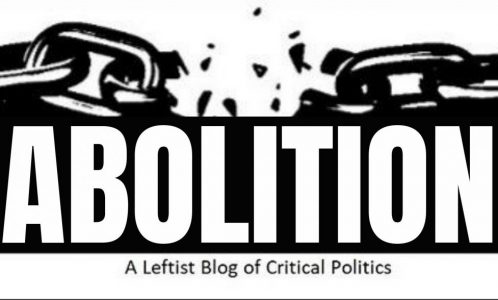Introduction
Although the viewpoint of the ruling class, its represenatives and its oppressive organizations (such as the Royal Canadian Mounted Police (RCMP)–practically the Canadian national police–should be analyzed, such analysis should be linked, when possible, to the attitude of workers, citizens, immigrants and migrant workers in order to gain a more balanced view of the situation.
One-sided Emphasis on the Viewpoint of an Oppressive Organization–the RCMP
John Clarke, former major organizer for the Ontario Coalition Against Poverty (OCAP), posted the following relatively recently on Facebook:
You’ve probably not thought of the RCMP as a source of revolutionary optimism but they are making some interesting predictions from the other side of the barricades. From the National Post.Secret RCMP report warns Canadians may revolt once they realize how broke they areA secret RCMP report is warning the federal government that Canada may descend into civil unrest once citizens realize the hopelessness of their economic situation.“The coming period of recession will … accelerate the decline in living standards that the younger generations have already witnessed compared to earlier generations,” reads the report, entitled Whole-of-Government Five-Year Trends for Canada.“For example, many Canadians under 35 are unlikely ever to be able to buy a place to live,” it adds.The report, labelled secret, is intended as a piece of “special operational information” to be distributed only within the RCMP and among “decision-makers” in the federal government.A heavily redacted version was made public as a result of an access to information request filed by Matt Malone, an assistant professor of law at British Columbia’s Thompson Rivers University, and an expert in government secrecy.Describing itself in an introduction as a “scanning exercise,” the report is intended to highlight trends in both Canada and abroad “that could have a significant effect on the Canadian government and the RCMP.”Right from the get-go, the report authors warn that whatever Canada’s current situation, it “will probably deteriorate further in the next five years.”In addition to worsening living standards, the RCMP also warns of a future increasingly defined by unpredictable weather and seasonal catastrophes, such as wildfires and flooding. Most notably, report authors warn of Canada facing “increasing pressure to cede Arctic territory.”Another major theme of the report is that Canadians are set to become increasingly disillusioned with their government, which authors mostly chalk up to “misinformation,” “conspiracy theories” and “paranoia.”“Law enforcement should expect continuing social and political polarization fueled by misinformation campaigns and an increasing mistrust for all democratic institutions,” reads one of the report’s “overarching considerations.”Ironically, among the report’s more heavily redacted sections is one carrying the subtitle “erosion of trust.” “The past seven years have seen marked social and political polarization in the Western world” reads a partial first sentence, with the entire rest of the section deleted by government censors.The censor’s pen also deleted most of a section warning about “paranoid populism.” “Capitalizing on the rise of political polarization and conspiracy theories have been populists willing to tailor their messages to appeal to extremist movements,” reads the section’s one non-redacted sentence.In terms of declining living standards and inaccessible home ownership, the RCMP’s warnings are indeed in line with available statistics.Canadian productivity — measured in terms of GDP per capita — has been trending downwards since at least the 1980s. But this has accelerated dramatically in recent years — even as per-worker productivity rises in many of our peer countries.An analysis last year by University of Calgary economist Trevor Tombe found that if Canada had merely kept pace with U.S. productivity growth for the last five years, Canadian per-capita earnings would be $5,500 higher than they are now.Meanwhile, housing affordability has reached “worst-ever” levels in most of Canada’s major markets, according to a December analysis by RBC. On average, even condos are now so unaffordable that only 44.5 per cent of Canadian households had sufficient income to buy one at current prices. As for single-family homes, only the richest 25 per cent of Canadian households had any hope of obtaining one.“Economic forecasts for the next five years and beyond are bleak,” reads the RCMP’s assessment of the rest of the decade, even adding a quote from French President Emmanuel Macron that “the end of abundance” is nigh.
Conclusion
Clarke should be praised for providing an account of the RCMP’s analysis of the social situation. However, should he not have also determined the attitude of workers, citizens, immigrants and migrant workers? If he had, the RCMP report might be looked at in a different light–an exaggeration of the extent of possible revolt in order to shore up the need for RCMP vigilance if not a justification of an increased budget.
